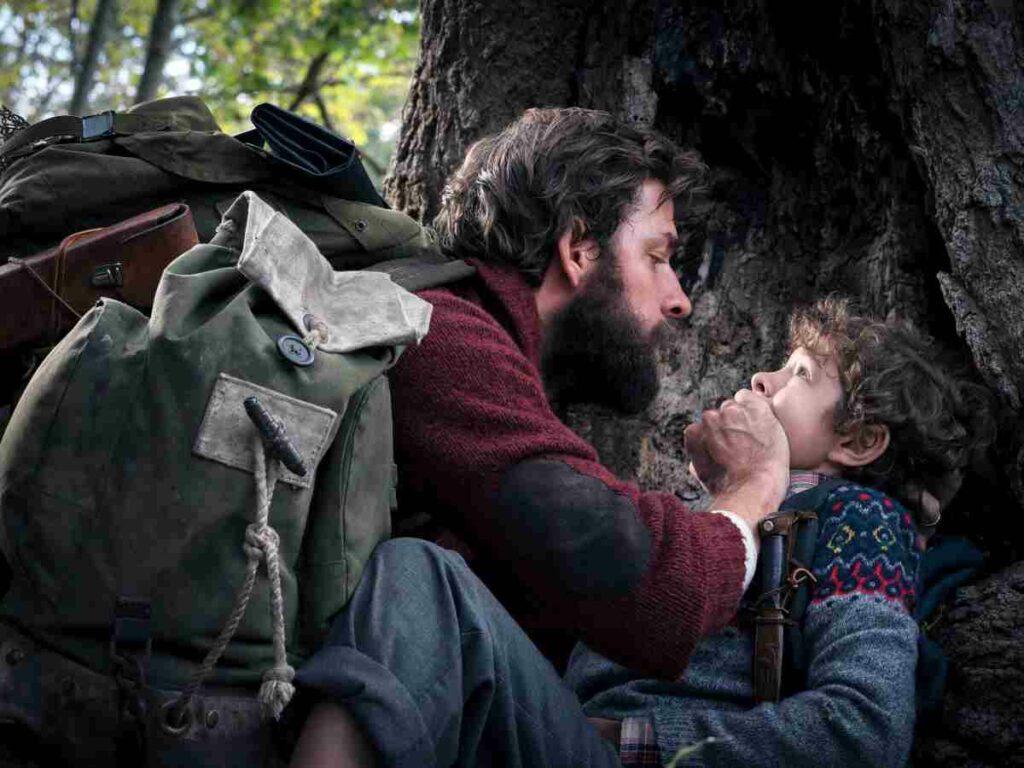Film critic and independent filmmaker Sudhish Kamath has subverted stereotypes with his unconventional style of storytelling. After Four-Letter Word (2006), Good Night Good Morning (2010), X – Past is Present (2014), Kamath is all set for his fourth – Side A Side B, a musical that explores the bittersweet heartache of first love. He tells Flickside what went into its making, lessons he has learnt as a filmmaker and more!
In a tell-all interview, Sudhish Kamath also opens up about his tussle-turned-legal battle with Drishyam Films, the production house behind titles like Aankhon Dekhi (2013), Masaan (2015), Waiting (2016).
It’s an intriguing, rather nostalgic title and so apt for a musical. Could you tell us more about Side A Side B?
Indian films are marketed around the world as musicals. Today, any film with song and dance is slotted as a musical. I wanted to explore the idea of the actors actually singing and performing live in a movie and when the right idea came my way, I just thought I should explore the screenplay as a musical narrative. Just eight songs, like a retro album. Four songs in the first half and four in the second. Here, each song plays out as a scene (with a bit of dialogue thrown in). Hence, the title Side A Side B. It’s also the name of the band in the film.
How did the idea of making Side A Side B come about?
I was catching up with Joel, one of my friends from Chennai who had worked on my last film “X – Past is Present,” and he told me he came to Bombay on a train with his girlfriend. ‘Why train?’ I asked. He said she was moving to Bombay and also taking her cat along. So we just hopped along to drop her all the way. ‘That’s super romantic, you should totally write this as a movie,’ I told him. He didn’t. So I did.
I have heard some of the songs from the film. Tell us about the music, the people who worked on it, how did you put it all together?
Sudeep Swaroop, my music director from “X – Past is Present,” dropped in to catch up the day after my birthday and I told him how I wanted to explore that (Joel’s story) as a musical narrative – with eight songs – a movie that would have just eight scenes. So each scene would be a song and would be shot as one long take. After every scene brief, he started strumming on his guitar and I recorded it on my iPhone. So he gave me 8 scratches in 40 minutes. The music not only stayed with me for weeks but proved to be catchy enough for me to believe that I can actually write a script around it.
Are you also funding the film?
Yes. With the last bit of my savings, the deposit from rent and money borrowed from my best friends.
You recently wrote about a rather bitter experience you had with a studio, which prompted you to get on the move, while continuing to make films. It’s anything but easy to take such a decision. Do you want to talk about it? What had happened?
I don’t let it get to me on most days when I wake up but every time I see or hear some indie messiah story, it really gets to me. Especially, because of the way we have been treated for just asking to be paid direction fees that was supposed to be on recovery of the production cost as promised to us verbally by the producer Manish Mundra in person, each time he met the team.
Our last film “X – Past is Present” recovered twice its production cost and every time we ask for our fees, the producer Manish Mundra “feels hurt” and disappears. In this case, we had worked on the film putting in our own money and resources and were made to drop the co-producer credit because Mr. Mundra wanted a solo producer credit.
Drishyam Films spent 1.5 crores on print and advertising. It led people into believing it’s a multi-starrer – like they had paid these stars or directors. They don’t even have release forms from the actors. Any of these actors can turn around and sue them. And I can only hope they won’t though they would be justified to believe they have been taken advantage of.
The producers have not paid one buck to any of these 12 leading ladies, not a single buck to any of the writers or directors, or to any of the cinematographers or editors or music directors.
It’s two and a half years of our lives taken away from us without credit or fees. I hope to get over it some day but yes, I have moved on to other projects. However, this does not mean I am okay with the injustice. This will continue to haunt us all for a very long time.
Are you taking any action against the makers?
For now, we are taking the legal route since they have technically infringed upon our copyright (registered with the Copyright office) and have no documentation or release forms from the authors. Anything you read about me having signed a contract that says they own the copyright or intellectual property is a lie. Sudhish Kamath
The filmmaker agreement was a 13-party agreement that hasn’t been executed yet. They did try to make some of us sign it holding the release to ransom. Luckily, not all of us signed it.
Is it just your passion to make films which led you this far into this decision (of moving out) or is there something beyond that which drove you?
Yes, there’s passion, of course. But more than passion, I think there’s a sense of outrage of how this business works that drives me. Why do producers feel like they don’t need to pay artistes? Why do they feel like they are doing artists a favour? Especially the producers who have the money to spend on marketing and PR.
So when I looked at how things worked, I felt the need to not just go do my films without being bogged down but also show these people in the business of films that it’s possible to make films without exploiting anyone who brings value to the table.
In Side A Side B, we drew up contracts for everyone and will share a percentage of the film’s profits. I paid people, who weren’t getting a percentage, a token amount. Does not matter whether I have the money or not, if I am employing people, I need to give them back something.
I couldn’t afford to this earlier in my career and had mostly worked with friends who understood this. But that’s not a feasible long-term model. To make it sustainable, you should pay people who work with you or give them a share in profits. It’s only fair.
This sense of doing the right thing having been screwed over is what’s driving me right now. I want to show people that it’s possible to make films with a tight budget, if you plan it right and also make this profitable. For all involved in the film. Pay the artistes, screw the middle-men who have made us all believe that people watch films because of the size of the posters, hoardings etc. They are liars and are getting a cut of the marketing budgets. The bigger the release, the bigger the cut. Which is why films fail.
Have you ever wondered how studio executives go on holidays and drive fancy cars when their films aren’t doing well and the cast and crew isn’t paid? Because most of them are corrupt.
When we did X, there was no way it could have failed because we shot it really cheap. They botched up the marketing by trying to cheat people and lost the gamble. It’s just not fair that they want us to pay the price for their mistakes.
Apart from this sense of trying to make films sustainable, there’s always been a personal reason behind every film I’ve made. Some people write diaries, I make films. I just make sure they aren’t autobiographical. Because the minute I base a character on me, I lose all objectivity. That’s the biggest lesson my first film taught me. I’ve just figured out a way that gives me catharsis without having to put myself in a movie character. I am fascinated by duality and counter arguments. So I ensure that my films are conversations between two sides of a story.
Your films focus more on characters, the significance of the plot/story notwithstanding. Do you have a favorite character from a film you’ve seen recently?
There’s always a plot but yes, I do find the characters’ journey to the point of transformation, discovery and redemption more interesting than the exact ending or destination.
I do revisit Cameron Crowe’s Say Anything all the time. I connect to Lloyd Dobler the most and hence, he’s my favourite. My movies are my boom-box.
One actor you’d want to direct/work with in the future? Do you have a story for him/her in mind?
Radhika Apte, definitely. Yes, I did send her the script but I have written three drafts of it since. So recently, I told her not to read it till we are done with the new draft. It’s a film called Ajnabee Hum Dono, a story about an unlikely romance and morality-defying companionship across Paris, Greece and Venice.
And what’s next after Side A Side B?
There’s a silent film I am planning to shoot in Tokyo and Istanbul with collaborators Elsa Bleda, a super talented photographer and an actress from South Africa and a Japanese actress and producer Allen Ai in October. We might shift Istanbul to South Africa because of the unrest there. But first, I’m finishing the Side A Side B edit and then, teaching a fiction-writing course in Bangalore.
When do we get to see the film?
We are almost done with the first rough cut of the film and are looking to premiere it at the best platform we can find for it. So it shouldn’t be too long.





So all are behind Radhika Apte….if this question was posed to him 20 years ago then he migh have said Smita Patil 🙂
🙂
He is a very balanced critic. He doesn’t bash a film unnecessarily like some other harsh movie critics.
Great read. Interesting questions and very well articulated answers.
Good one! Nice website.
Salute to their passion
When is this movie releasing Side a side B
Nicely done interview. Great questions. Good luck to him on his movie.
He is one of the best reviewers. I recently read his piece on Ae Dil Hai Mushkil. It’s a must read!
New writers coming into the scene. They are bringing in fresh concepts, which our industry is in dire need of. Hats off to them for their passion…
I saw his film X Past is Present. Was a unique concept. This one too looks interesting
It’s hard to believe these kind of stories when Bollywood shows such camaraderie on social channels. So sad.
I like the title. Best of luck to Sudhish Kamath.
Good one… Smaller, independent projects take time to finally reach the audience but I hope this one makes it fast…
Never heard of this movie… but great interview!
Good questions and very honest answers from Sudhish Kamath… super movie critic he is..
Shocking to read about companies like Drishyam Films… the bitter reality of our industry
I want to see this movie. Has it released?
Cant wait to see the film!
This manish mudra guy has produced a lot of small films and very good films.
Great interview very good questions
Nicely done!
It’s so disheartening to see artists not being valued. Sorry reality of our film industry which looks all glitter and glamour on the outside.